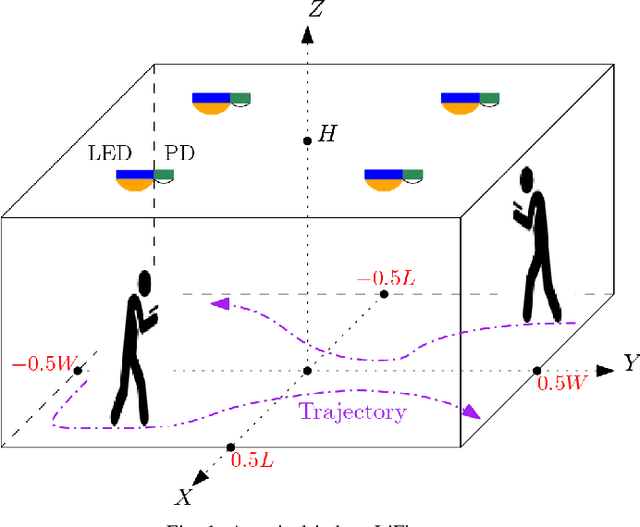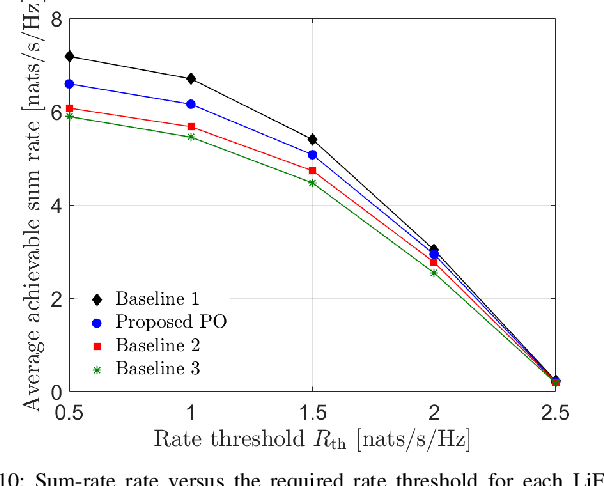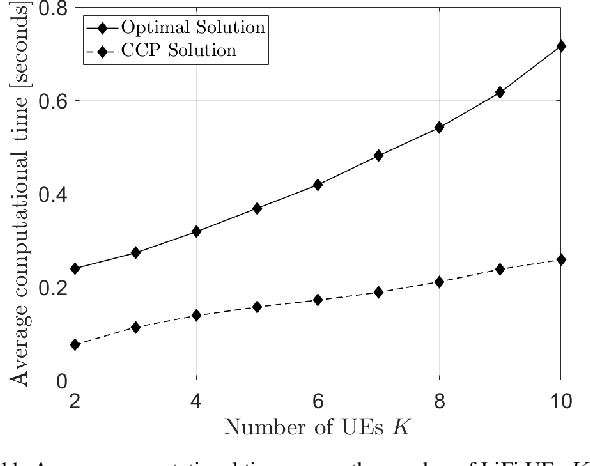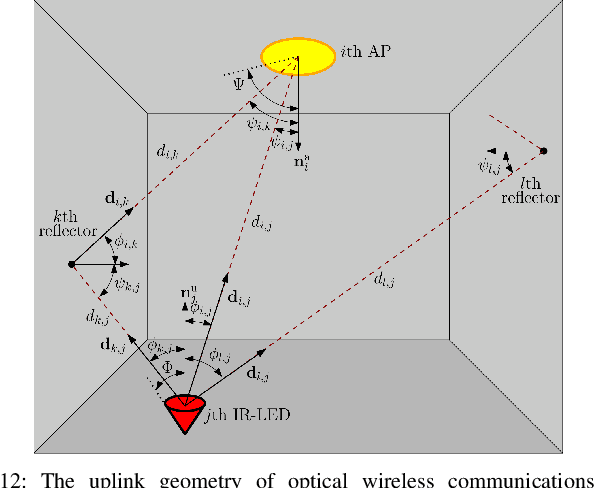Deep Learning Based Proactive Optimization for Indoor LiFi Systems with Channel Aging
Paper and Code
Apr 21, 2021



This paper investigates the channel aging problem of light-fidelity (LiFi) systems. In the LiFi physical layer, the majority of the optimization problems for mobile users are nonconvex and require the use of dual decomposition or heuristics techniques. Such techniques are based on iterative algorithms, and often, cause a high processing time at the physical layer. Hence, the obtained solutions are no longer optimal since the LiFi channels are evolving. In this paper, a proactive-optimization approach that can alleviate the LiFi channel aging problem is proposed. The core idea is to design a long-short-term memory (LSTM) network that is capable of predicting posterior positions and orientations of mobile users, which can be then used to predict their channel coefficients. Consequently, the obtained channel coefficients can be exploited for deriving near-optimal transmission-schemes prior to the intended service-time, which enables real-time service. Through various simulations, the performance of the designed LSTM model is evaluated in terms of prediction accuracy and time. Finally, the performance of the proposed PO approach is investigated in the sum rate maximization problem of multiuser cell-free LiFi systems with quality-of-service constraints, where a performance gap of less than 7% is achieved, while eliminating up to 100% of the online processing-time.
 Add to Chrome
Add to Chrome Add to Firefox
Add to Firefox Add to Edge
Add to Edge